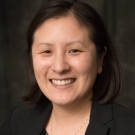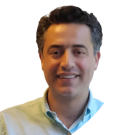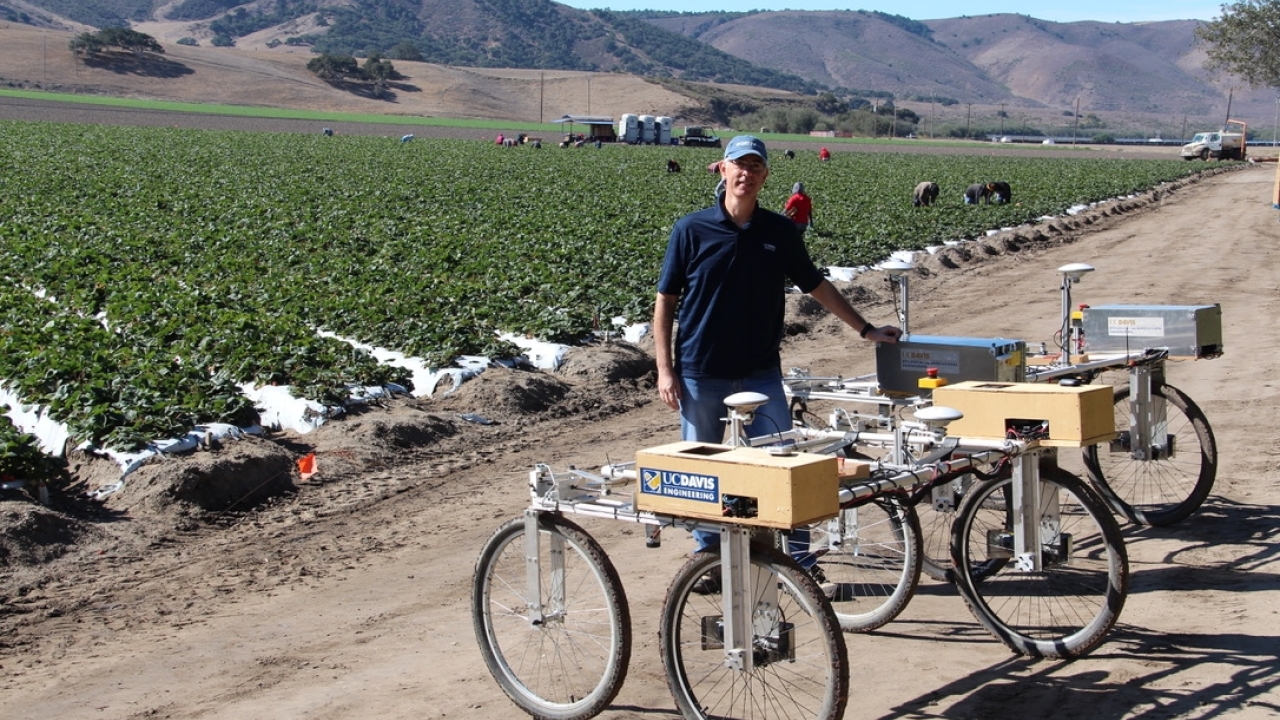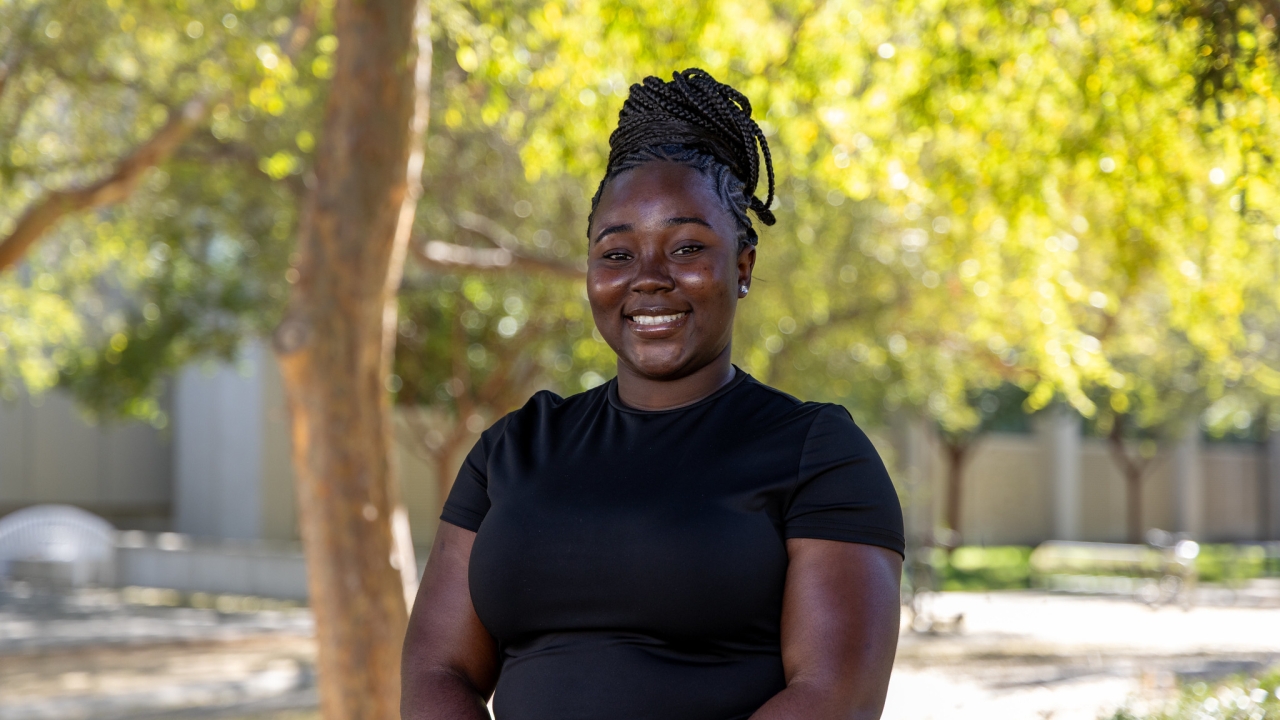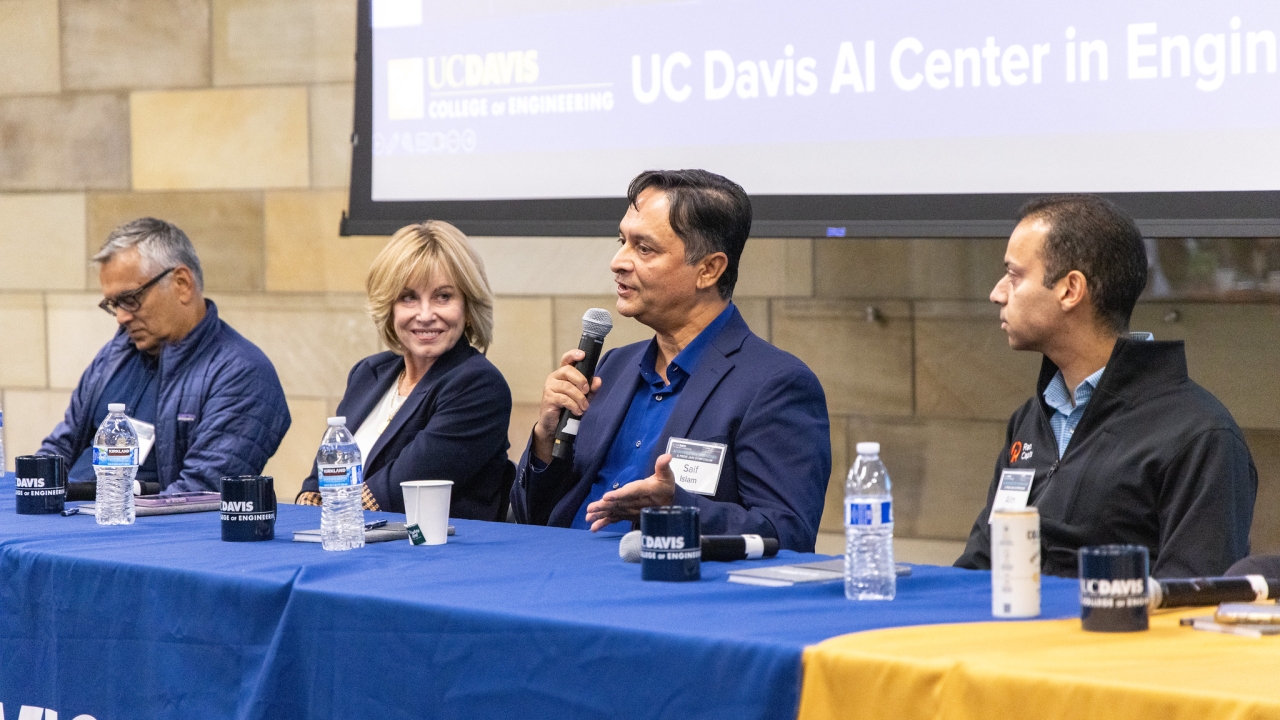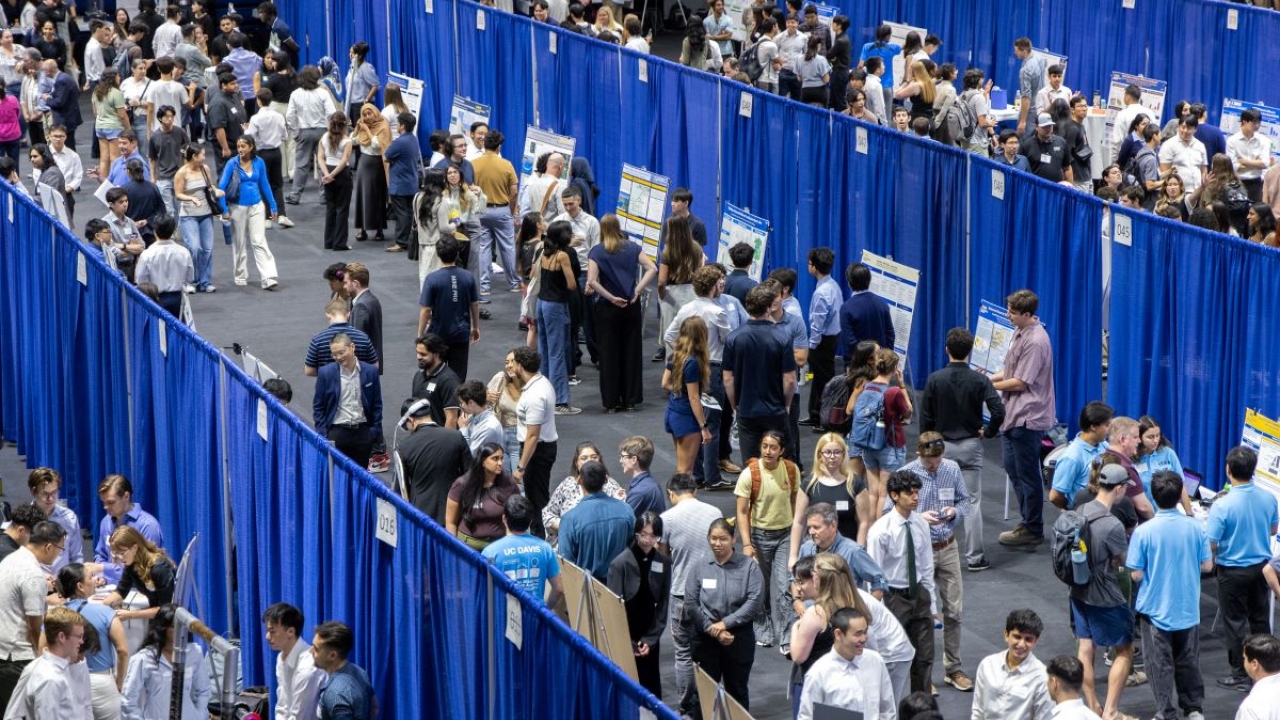
Sandia National Laboratories Celebrates Aggie Engineers with Design Awards
For an implantable device improving outcomes of rotator cuff surgery and an IoT waste sorting system, two undergraduate engineering teams at the University of California, Davis, have received the Sandia Engineering Design Award from Sandia National Laboratories.
The annual award, broken up by first and second place winners, celebrates outstanding engineering senior projects that support the United States' national security through innovations in defense, natural resources or the economy.
A panel of judges made up of technical staff and recruiting members from Sandia selected the winning designs from a pool of four finalists during the 2025 Engineering Design Showcase, held at the UC Davis University Credit Union Center on June 5.
The top prize went to a team of biomedical engineers for ImmobiCUFF, a device that significantly reduces the need for follow-up rotator cuff surgeries and improves patient recovery time.
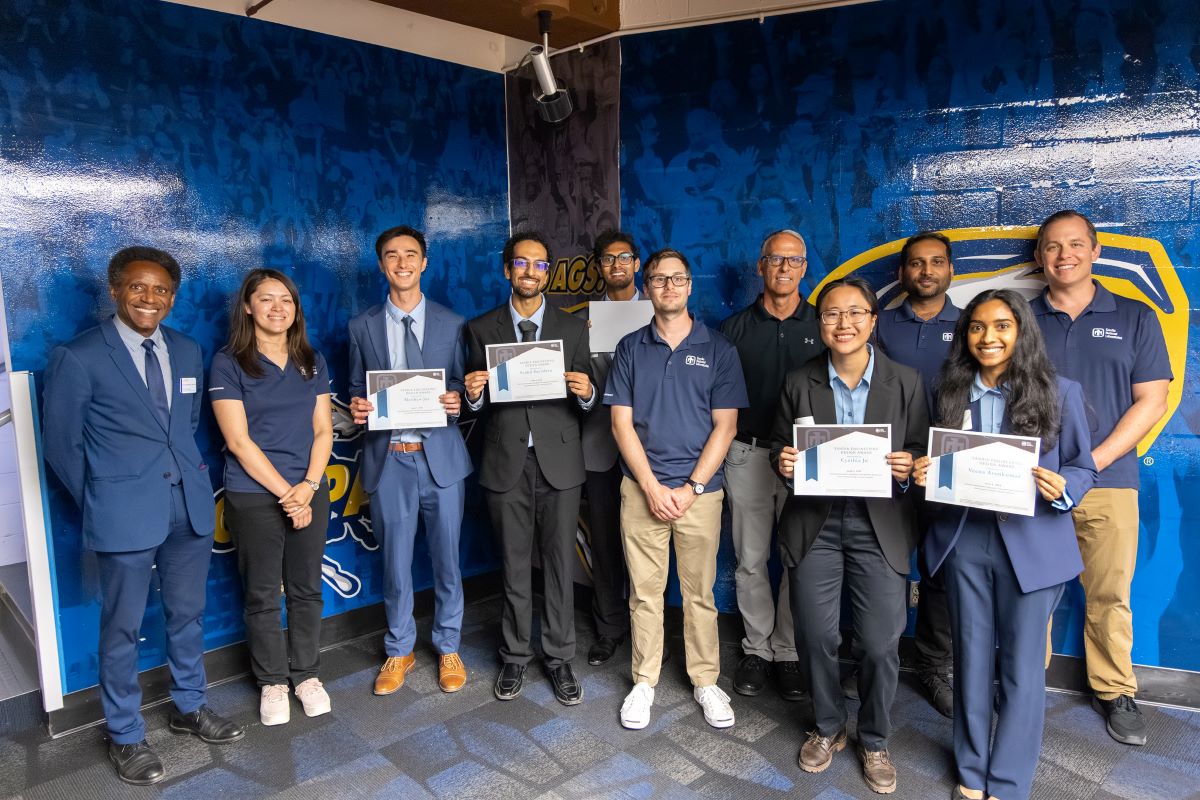
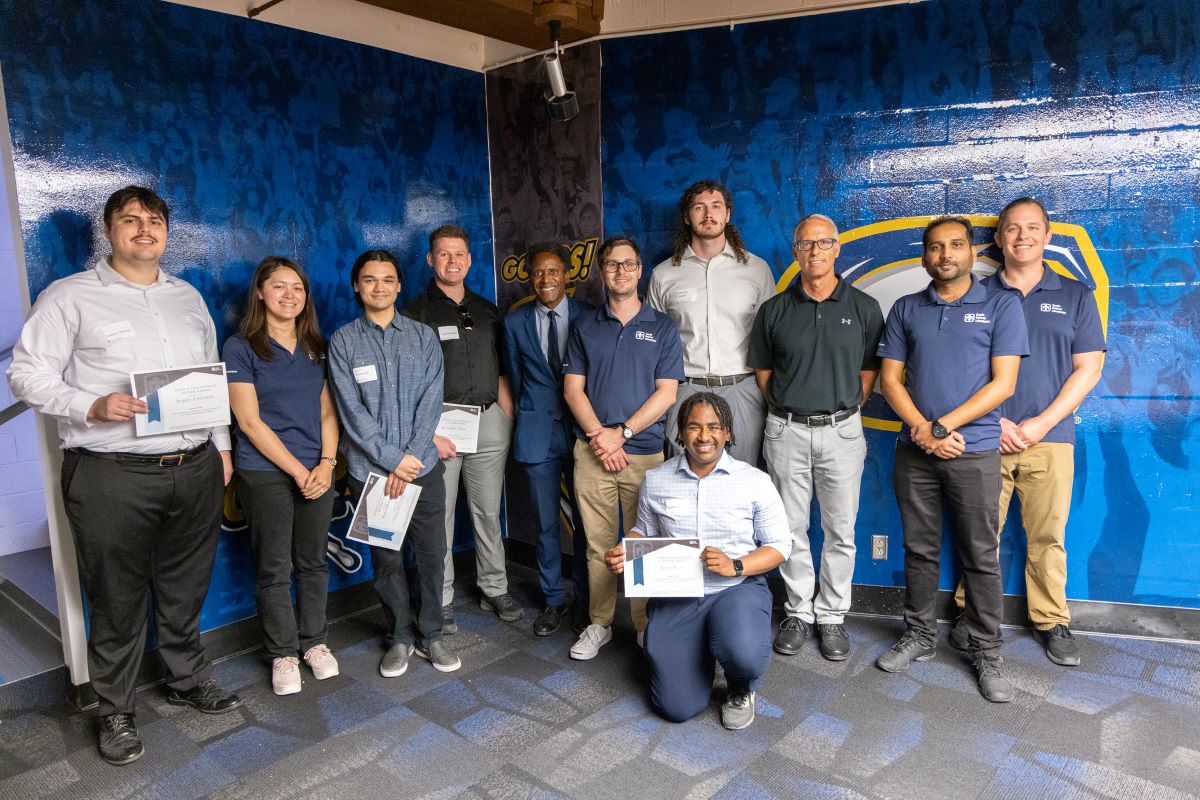
Every year, 65,000 Americans tear their rotator cuffs following rotator cuff surgery, leading to costly and preventable repairs. The high rate of reinjury is due to post-operation solutions like abduction slings, which a patient can remove at any time.
Graduating seniors Veena Arunkumar, Cynthia Ju, Matthew Jue, Rohan Kumar and Saahil Sachdeva worked with Associate Professor of Teaching in Biomedical Engineering Jennifer Choi and Dr. Kyle Walker, an orthopaedic surgeon at UC Davis Health, to engineer a solution to this problem. They landed on an implantable and resorbable device that gradually restores a patient's range of motion, ensuring the muscles recover during critical healing stages.
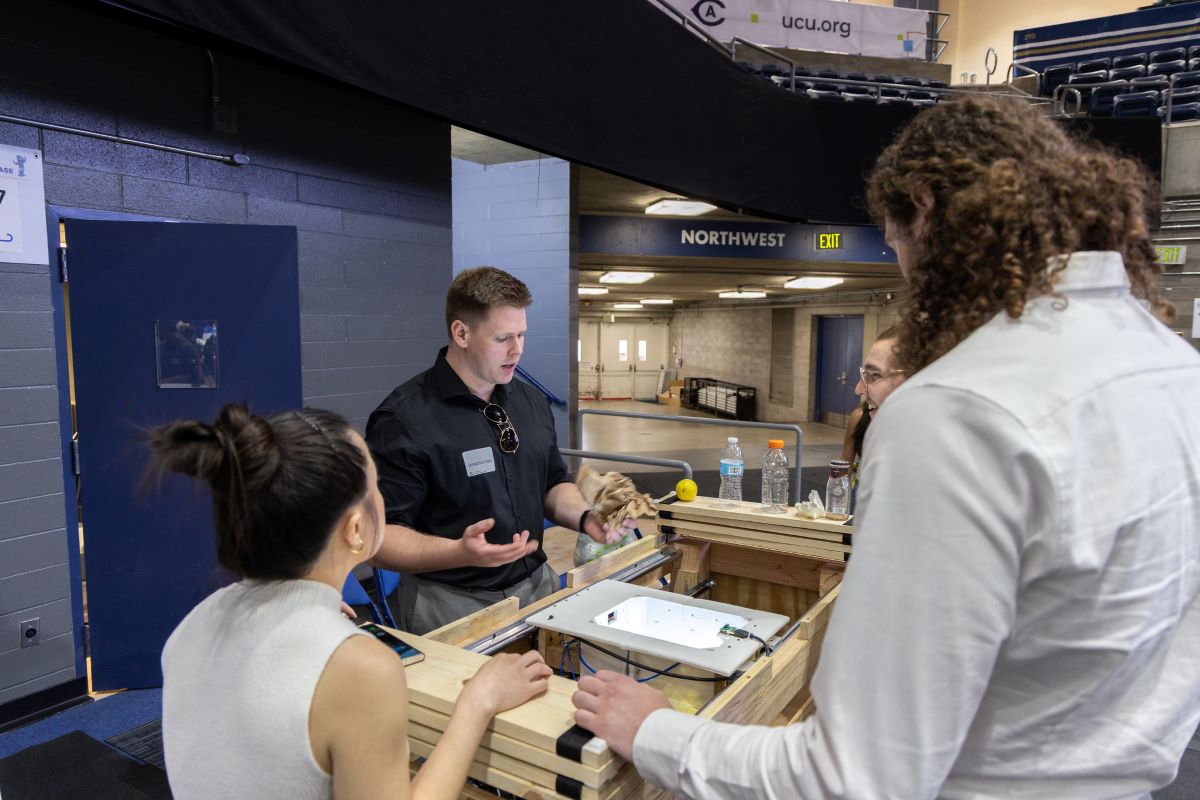
"With a deep understanding of patient needs and a commitment to precision medicine," said Hemant Choudhary, a senior member of Sandia's technical staff, "the ImmobiCUFF team designed a patient-tailored implant that reimagines rotator cuff repair by reducing retear risk and enabling truly personalized recovery while setting a new standard for engineering in healthcare."
Second place went to Angus Callahan, Jonathan Hess, Dominick Oleesky, Brian Olszewski and Jacob Petros, a team of electrical and computer engineers advised by Professor Avesta Sasan.
They created ReMoove, an Internet of Things waste sorting system. ReMoove aims to reduce landfill contamination in high-traffic areas and facilitate sustainability tracking through a custom app.
"The ReMoove team leveraged their expertise and passion to develop a smart, scalable system that actively tackles waste contamination on the UC Davis campus and beyond by bringing engineering design to life through seamless automation and real-time, cloud-based classification," Choudhary said.

